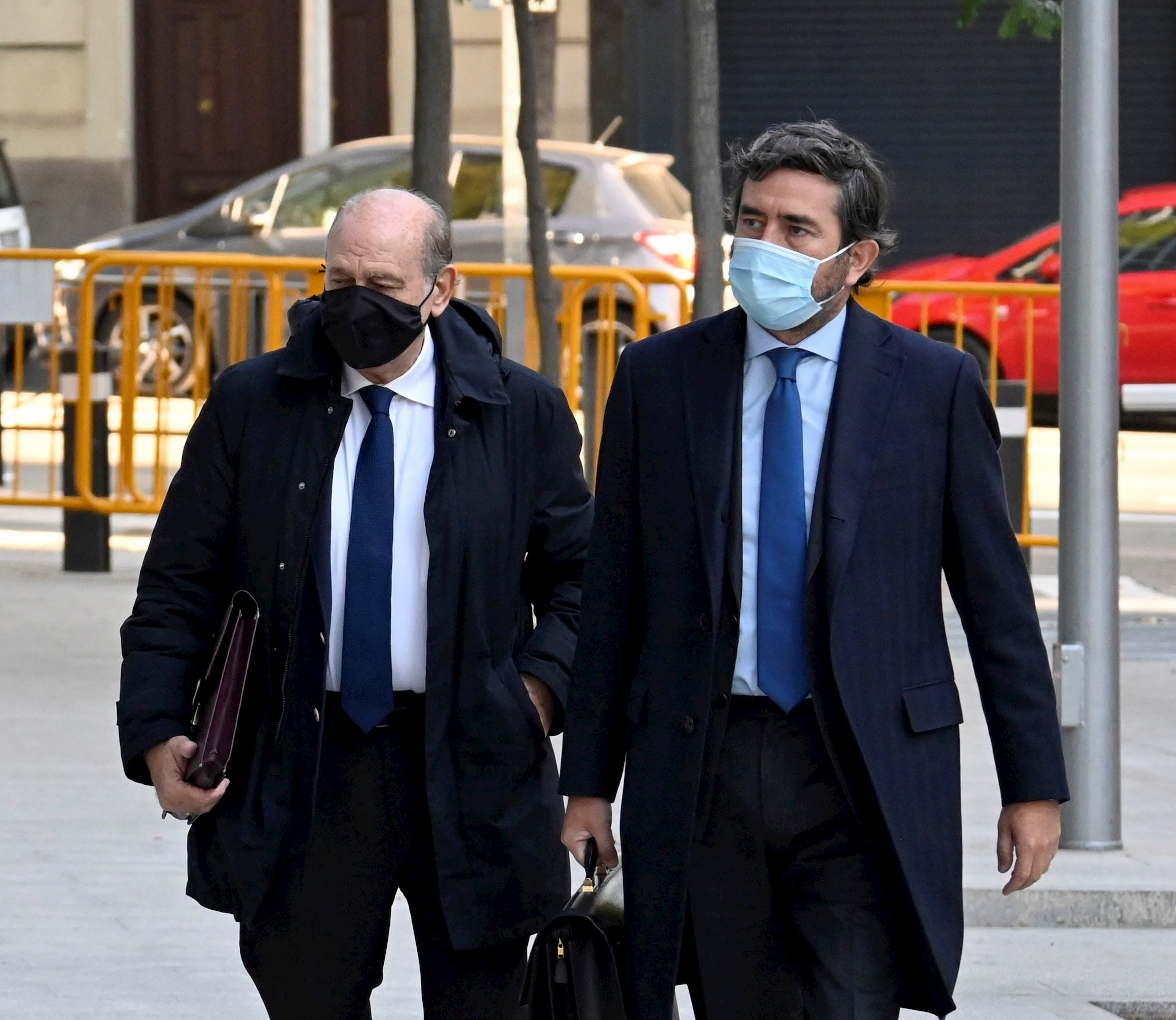Back in the day, they worked alongside each other in the Spanish interior ministry. Today they confront each other in a direct face-off. This Friday saw a tense confrontation in the National Audience courtroom between the accounts given by Jorge Fernández Díaz, former interior minister under the Rajoy government, and the official who was his number two, Francisco Martínez. According to judicial sources, the former today again denied any knowledge of the so-called Operation Kitchen, the plot by Spain's then-governing PP party to steal compromising documents held by the party's former treasurer Luis Bárcenas. The latter reiterated his own version: his boss called him repeatedly to find out about the operation and he possesses saved messages proving that the minister was fully in the loop. The judge called for this face-to-face appearance due to the contradictory versions that the two were sticking to. As well today, Fernández Díaz failed to hand over the mobile phone he used when he was minister, despite being asked to do so by the judge.
The Operation Kitchen inquiry became known to the public in September, when a court secrecy order was lifted on an investigation into several members of Mariano Rajoy's PP government. It is alleged that an irregular "patriotic police" unit, led by interior minister Fernández Díaz, was tasked with spying on former PP treasurer Luis Bárcenas, already implicated in other PP corruption cases. The plan was to steal sensitive party documents in his possession to prevent him from using them to incriminate other members of the right-wing party.
Two weeks ago, Fernández Díaz went before the judge and declared that he had learned of the espionage plan "through the press". He also denied having sent the messages attributed to him, thus contradicting the declaration of his former number two, Martínez. The investigating judge, according to judicial sources, was perplexed: "You didn't have any idea of what was happening."
This time, Fernández Díaz again denied Martínez's claims that he called his undersecretary to stay up to date with the operation. "I've never heard of 'Kitchen'. I don't believe in this operation," the former minister said. His ex-undersecretary replied that this was not correct: "You called me every day, at any time of day, even on weekends." The same went for the alleged messages, which according to Fernández Díaz "are manipulated". Faced with this, according to judicial sources, Martínez replied: "Are you accusing me of committing a crime? What am I, a hacker?"
Two weeks ago, the judge asked the former minister to hand over the mobile phone he used when he was minister. But today, when told he should surrender the device to the court, Jorge Fernández Díaz replied that he did not even have it. He stated that he would provide an expert report to prove that the alleged SMS messages are "fake".
The accusations did not please his former subordinate. Francisco Martínez asked rhetorically: "What on earth could he have done?" And he concluded bluntly, "I'm sitting here because of you." The confrontation, which lasted about two hours, started off in a state of high tension and ended the same, with a brief episode of cordiality in the middle.
55 instances of illegal monitoring
The Operation Kitchen investigation points towards alleged illegal monitoring to search for evidence and destroy it in case it incriminated the Popular Party. According to the judge, the "highest bodies and officials in the general administration of the state" created a "parapolice operation" that acted, outside the law, "at least between 2013 and 2015." Its aim was to obtain "documentary material that compromised senior leaders" from Luis Bárcenas, the PP's ex-treasurer, and thus neutralize political threats to Mariano Rajoy's government. Up to 55 instances of monitoring took place without a court order, according to published information from the summary of the court investigation. The main means used was the former PP treasurer's driver, Sergio Ríos, who allegedly received 53,000 euros for stealing documentation, including compromising audios.

